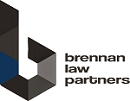Vicarious Liability: Childhood Sexual Abuse & Schools
In light of todays Magistrates Court decision for George Pell to stand trial on allegations of historical child abuse, many of you may be revisiting old questions about the vicarious liability of your school arising from historic sexual abuse and avenues for legal action that victims may have.
Vicarious Liability
Schools (and in some instances, Principals personally) are vicariously liable for the acts of employees committed in the course of employment. What, however, is the school’s position when an employee engages in dangerous or criminal activity whilst at school?
The phrase “in the course of employment” is very significant as it limits the reach of liability that can attach to a school. Whilst the starting point is that a school, as an employer, is liable for the actions of its staff, a school may not necessarily be liable where a teacher or employee abuses a student. The circumstances of each case must be considered. Courts will take into account whether there was an “occasion” for abuse within the apparent performance of the staff member’s role.
On what basis can a school be liable for sexual abuse?
The position in Australia is not clear or finite on this issue. Australian courts are reluctant to impose vicarious liability on schools for acts that are so far outside the scope of an employee’s employment, such as sexual violence. However, there may be a risk of liability attaching to a school if the school creates or enhances the risk of sexual abuse by the duties assigned to the staff member.
Different Roles
The very nature of the role of employment is significant in determining whether the abuse took place in the course of employment. For example, a classroom teacher abusing their power and trust and harming a student is much less likely to be considered “in the course of employment” than a boarding master engaging in similar acts. Its is reasonably foreseeable, from the point of view of a school, that a boarding master has access to students in a different capacity and with greater power or scope for harm than a classroom teacher.
Reasonable Precautions and Duty of Care
Claims made against schools alleging vicarious liability for the actions of an employee are often based in an allegation that the school failed to take reasonable precautions to prevent the sexual abuse. In a 2008 case, the court considered three broad issues when determining whether the school breached its duty of care:
- Whether the school made appropriate enquiries about the staff member in question.
- Whether there was adequate supervision of the staff member.
- The school’s response when it found out about the abuse. The court said that the duty extended to taking reasonable steps to care for the student’s welfare once the abuse was discovered.
It is important to note that the standard of care will depend on what the standard of care was at the time of the abuse.
Time Limitations
Ordinarily, there is a 6 year limitation period within which an individual can bring legal action for a claim in negligence or breach of duty of care. Whilst these time limitations exist, courts have a discretion to extend a limitation period to allow a person to make a claim in appropriate circumstances. Every claim requiring an extension of the limitation period will be assessed individually having regard to the claimants capacity and the subjective knowledge.
The Royal Commission
Without doubt, you will be aware of the recent royal commission into childhood sexual abuse. Indeed, many of you will have had involvement in some capacity.
The report handed down by the royal commission made 189 recommendations for the protection of children and the support of past victims. The recommendations, whilst not binding, create a reference point upon which schools can be assessed in their handling of both historical childhood abuse and the prevention of future abuse. In some circumstances, the recommendations may be used to guide or position legal action against schools.
Some of the recommendations that are particularly pertinent for schools are:
- All institutions should implement a list of child safe standards identified by the royal commission, to be enforced by federal, state and territory governments
- Parish priests should no longer be the employers of principals and teachers in Catholic schools
- There should be no exemption to mandatory reporting for child sexual abuse disclosed during a religious confession
- Institutions that engage in child-related work should retain records relating to child sexual abuse for at least 45 years
The impact for your school
Whilst statutory time limitations will generally apply to bar legal actions being brought against schools relating to historic childhood sexual abuse, the door to such claims has not been closed by Australian courts. Accordingly, schools must now be both proactive to prevent future harm, but also mindful of any allegations that are raised abuse past abuse, to ensure that those complaints are dealt with properly.
If you receive notification of past abuse, you should seek legal advice promptly. The new redress scheme established by the Commonwealth government and implemented by the states should assist to provide support to survivors that were abused as children while in the care of an institution, but it does not eliminate the risk of legal action.
Furthermore, having regard to preventing future abuse, the current climate reiterates the need for schools to be vigilant in their management of staff to minimise the risk of abuse to children. You should ensure that your school maintains strict policies and procedures that deal with the issue of abuse of children and staff management.
Summary
- Sexual abuse in Victorian Catholic schools has become less of a concern as awareness has been raised.
- Historic cases are still coming forward and survivors have various courses of action available to them.
- Under the new Redress Scheme, if the Catholic Church opts in, this may involve formal apologies being issued by Parishes and Schools.
- Schools should have strict policies to manage their staff and protect students health and safety.
How can Brennan Law Partners Assist
If you receive notification of historical sexual abuse in your school, or have a concern about a particular staff member or policy, please feel free to contact us at any time so that we can assist you.
This is meant as a guide only.
Childhood Sexual Abuse






